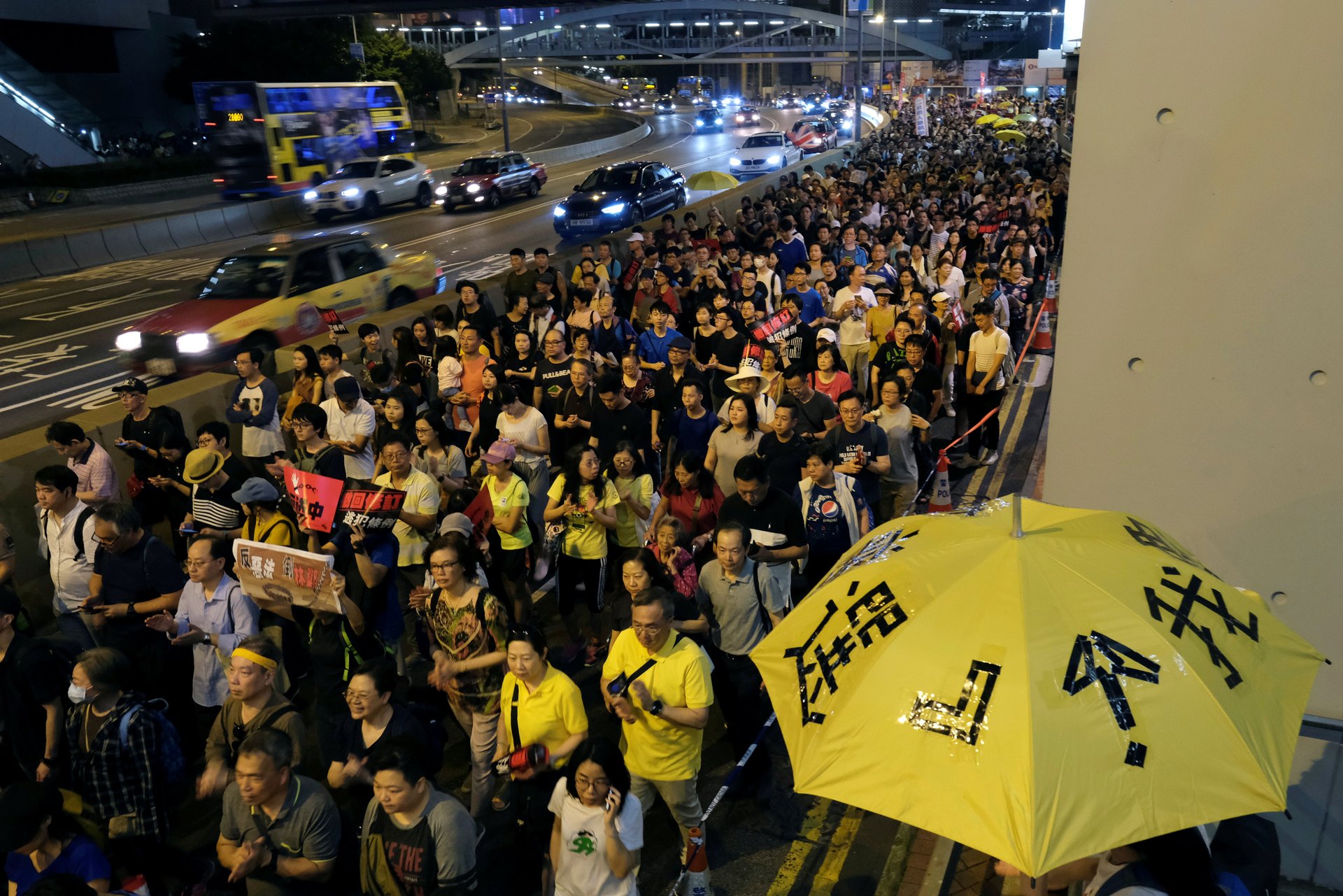New legislation could penalize Hong Kong residents for breaking laws that don’t yet exist
The Chinese judicial system is secretive, Byzantine, and uncompromising. It is also subject to change with little warning. These facts, along with the Chinese government’s well-documented antipathy toward activists and political dissidents, spurred tens of thousands of Hong Kong residents to take to the streets on April 28 over a proposed government plan that would make it easier to extradite people to the other Chinese territories, including the mainland, where they would be subject to Chinese law.


The Chinese judicial system is secretive, Byzantine, and uncompromising. It is also subject to change with little warning. These facts, along with the Chinese government’s well-documented antipathy toward activists and political dissidents, spurred tens of thousands of Hong Kong residents to take to the streets on April 28 over a proposed government plan that would make it easier to extradite people to the other Chinese territories, including the mainland, where they would be subject to Chinese law.
One significant fear is that people would be penalized for breaking laws that are yet to be written. “They say if you’re innocent you shouldn’t be afraid,” one protester told the Guardian. “But the legal system in China changes. They can make up the law and say that people did whatever they want.”
Though the plan’s current push is ostensibly to allow a murder suspect to be extradited to Taiwan before the current legislative period ends in July, Hong Kongers fear possible effects for political dissidents, religious workers, or even entrepreneurs. Some have read it as the latest effort by Beijing to exert its creeping influence over the territory.
Since its handover from Britain in 1997, formerly liberal Hong Kong has been met with repeated China-backed assaults on its freedom, including attacks on journalists and freedom of speech.
Lam Wing-kee (paywall), among the prominent Hong Kong residents who have raised awareness about the plan, is on the run from the Chinese government for disseminating gossipy political books about party leaders. In Hong Kong, Lam is protected by colonial-era rules; under the law change, he would be extradited without recourse and likely face years in prison.
As for how many protesters took part in the demonstrations, estimates vary: Police say under 23,000, organizers peg it at nearly130,000. Either way, this was the largest rally since 2014, when pro-democracy activists marched with yellow umbrellas against legislative reforms of the Hong Kong electoral system by the National People’s Congress.
The architect of the extradition plan is Carrie Lam, Hong Kong’s pro-Beijing chief executive, who was elected in 2017 by an 1,194-person election committee, rather than by a public vote by Hong Kong’s 7.3 million residents. Lam told reporters that the plan is a simple effort to close a legislative loophole, but its wide swathe of potential powers are said to go far beyond what’s strictly necessary for the Taiwan case.
Calls from international organizations and business groups, including the American Chamber of Commerce, to adjust the proposal have fallen on deaf ears. So too will the cries of protesters who called for Lam to “step down” and abandon the plan altogether.